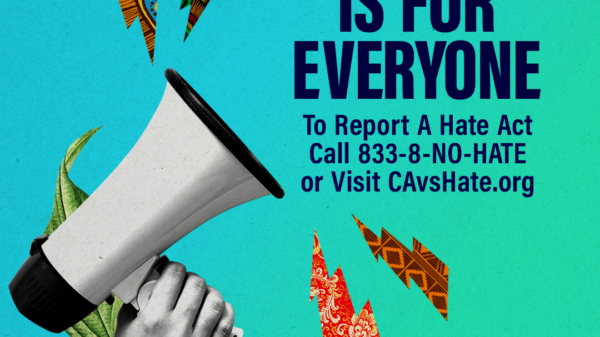A recent study from the Cochrane Collaboration, a highly respected independent nonprofit medical research organization, casts doubt on the efficacy of N95 masks and P2 respirators as safeguards against COVID-19 infections. According to the researchers, wearing a mask may make little to no difference in how many people catch flu-like illnesses or COVID-like illnesses, based on their review of 10 studies.
However, some experts argue that masks remain effective in containing the spread of COVID-19 infections. Others claim that vaccines are the best prevention against infection and that masks are unnecessary.
An Ethnic Media Services ( EMS) briefing brought experts to debate this continuing and contentious issue, and provide advice for keeping children safe amid the ongoing health crisis.
Dr. Schaffner, a professor of medicine in the division of infectious diseases at Vanderbilt University School of Medicine, Nashville, will discuss the Cochrane study’s findings and his analysis of the conclusions, as well as his recommendations on whether to continue masking.
Masks have been used for millennia to interrupt the spread of infectious diseases in healthcare environments and communities, particularly in the eastern part of the world, where the general population often wears masks during the winter influenza season to prevent the acquisition and spread of infections. The exact utility of masks has received significant attention during COVID-19.
The Cochrane Collaboration conducts rigorous reviews of medical literature on timely issues. They are extremely meticulous in selecting studies for review, prioritizing studies that guarantee objectivity, such as prospective control double-blind studies. However, for mask studies, it is challenging to recruit volunteers who are randomly assigned to wear or not wear a mask, particularly outside healthcare environments. Furthermore, even studies that attempt to match these rigorous principles are not perfect because it is difficult to monitor participants’ mask-wearing behavior continuously. Correct mask-wearing is crucial, and masks must be worn correctly, covering both the nose and mouth.
Although dozens of studies, large and small, better and poorly designed, exist in the literature, the Cochrane Collaboration only reviewed a handful of studies that were sufficiently rigorous, and even they were not perfect. Additionally, most of these studies dealt not with COVID-19 but with influenza. Although these two viruses are similar, COVID-19 is transmitted through droplets and airborne routes, while influenza is transmitted almost exclusively through close distances.
According to Dr. Schaffner, cloth masks are worthless, and surgical masks should be worn by surgeons to prevent bacteria from entering wounds. While surgical masks are not entirely the same circumstance as COVID-19, influenza, and RSV infections, they are still recommended in the community environment. The Cochrane Collaboration is very cautious, but Dr. Schaffner recommends that older individuals, pregnant women, those with notable underlying serious diseases such as heart disease, lung disease, diabetes, and anyone who is moderately or seriously immunocompromised due to medication or underlying illness should consider wearing a KN95 or N95 mask in group settings indoors, such as religious services, basketball games, conventions, etc.
In conclusion, the decision to wear a mask in public is a personal one, and people should consider their individual health status, age, and immunocompromised state before deciding to wear a mask. While masks may not be entirely effective, they are still recommended as a preventative measure.
Dr. Monica Gandhi, a Professor of Medicine and Associate Division Chief of Clinical Operations at the Division of HIV, Infectious Diseases, and Global Medicine at the University of California San Francisco General Hospital, and author of “Endemic: A Post-Pandemic Playbook,” spoke about masks and the Cochran review. Dr. Gandhi agrees with Dr. Schaffner that vaccines are the strongest form of protection against severe COVID-19 and is impressed with the vaccine’s effectiveness, which has led to very little severe disease during the winter. Dr. Gandhi’s interest in masks during the pandemic’s first year was centered on reducing the severity of the disease by lowering the viral load. However, the question on the table is whether masks are effective in reducing transmission at a population level to impose mask mandates. The Cochran review is very rigorous and considered three major randomized controlled trials to make a recommendation on whether mask mandates made a difference during the pandemic. One of the studies was the Denmark RCT of individual-level masking published in the Annals of Internal Medicine that showed no effectiveness of masks. Dr. Gandhi believes that this was not the right way to study masks and that a cluster-randomized study was needed. Such a study was performed, the Bangladesh RCT of masking at a population level cluster randomized trial, which showed little effectiveness of cloth masks and some effectiveness for surgical masks. Unfortunately, a re-analysis of the Bangladesh data, published in Science, showed no effectiveness of population-level masking. Finally, there was one study in Guinea-Bissau that showed no effectiveness, but that study used cloth masks. Dr. Gandhi believes that there is not enough evidence to mandate masks at the population level anymore, but individuals should wear the right type of mask, such as KN95, KF94, FFP2, with a strong fit and filter. She encourages vulnerable populations to wear masks if they would like to, but it should be a personal choice at this point. Dr. Gandhi is interested in increasing trust in public health moving forward, even though the evidence is not high enough to impose mask mandates at this point.
The third speaker, Dr. Mina Hakim, is a pediatric specialist at the South Central Family Health Center, which has been an invaluable resource for us in these briefings.
While I’m honored to be here with such distinguished colleagues, I want to make it clear that I’m not a researcher. I’m a primary care doctor who works in a heavily populated South Central area as a pediatrician, so my experience and views come from the “trenches.”
Firstly, I want to clarify a few questions that I saw in the chat regarding the Cochran review. It’s important to note that the Cochran review is not just one paper that did a single study. It’s a collection of studies, comprising 70-something papers with over 610,000 participants. As Dr. Schaffner said, the selection of studies that made it into the review was very rigorous. Comparing the Cochran review to a single study is unfair.
The results of the Cochran review are clear: neither surgical masks nor N95 masks made a significant difference in the transmission of viral infections, including COVID-19 and the flu. The study also looked at a few studies specifically focusing on children, and the results were even worse. As Dr. Gandhi and Dr. Schaffner have said, the limitation of masks is in how they are used. In theory, masks are an excellent mode of prevention, but in practice, it’s not so simple. It’s like giving someone a syringe and telling them to give themselves a vaccine; the general public doesn’t know how to use vaccines, and likewise, many people don’t know how to use masks appropriately.
Children, in particular, are challenging when it comes to masks. They tend to be the worst at keeping things on, no matter how many attachments they have. They’re touching things, wiping their noses, taking their masks off to eat and drink, and sharing pencils and pens that have been in other kids’ mouths. Teenagers are also notoriously non-compliant. Overall, the study found that masks were worse for children’s outcomes. In my practice, I get asked a lot about whether children should continue wearing masks, and my answer is no. We should educate them that a mask is just a small piece of a much larger puzzle. We should encourage vaccinations and other measures to prevent the spread of viruses. Asking children to wear masks is not a fair burden to place on them.
However, there are exceptions. Children with severe asthma or immunocompromised conditions should continue wearing masks, and I would encourage their parents to have a conversation with them about the importance of doing so. But for children who are not going to be able to cooperate and will touch their faces, share drinks, and engage in other noncompliant behaviors, it’s not a smart idea to be doing so in the first place.
The study also looked at hand sanitization versus surface sanitizing, although these were smaller aspects of the study. It found that hand hygiene, especially with hand sanitizer, was effective in reducing transmission by about 11 to 14 percent. The study also found that surface sanitization could reduce the risk of transmission, although it only looked at a few papers on this topic.
Moving forward, my recommendation is that schools should not mandate masks, and masks should be a personal choice. If wearing a mask, use a well-fitted N95 mask for high-risk patients. However, the better preventative measures are good hand hygiene and sanitization in schools. Sanitizing surfaces that children frequently touch, such as toys, utensils, pens, and books, is critical, as transmission occurs not only through droplets in the air but also through contact with contaminated surfaces. Good screening for symptoms is also important in preventing the spread of viruses.








